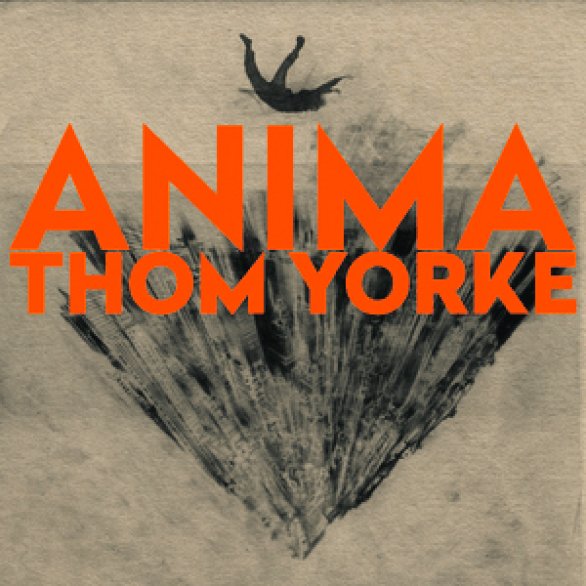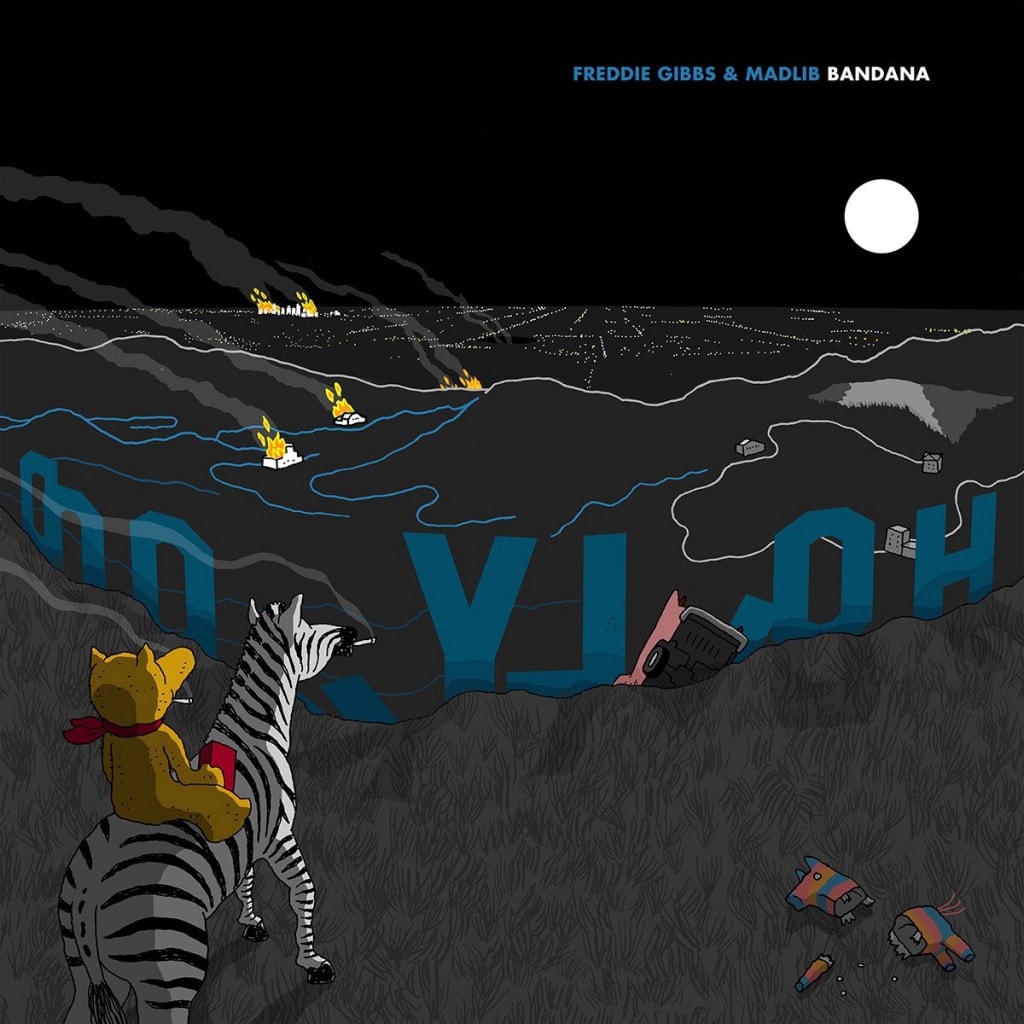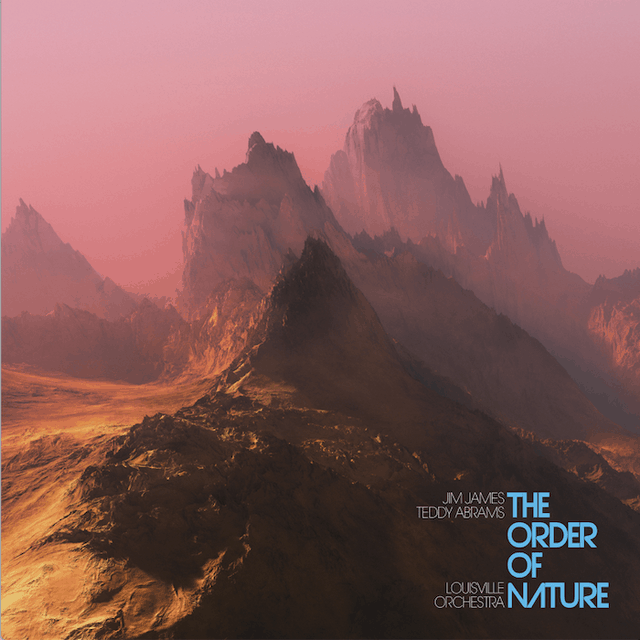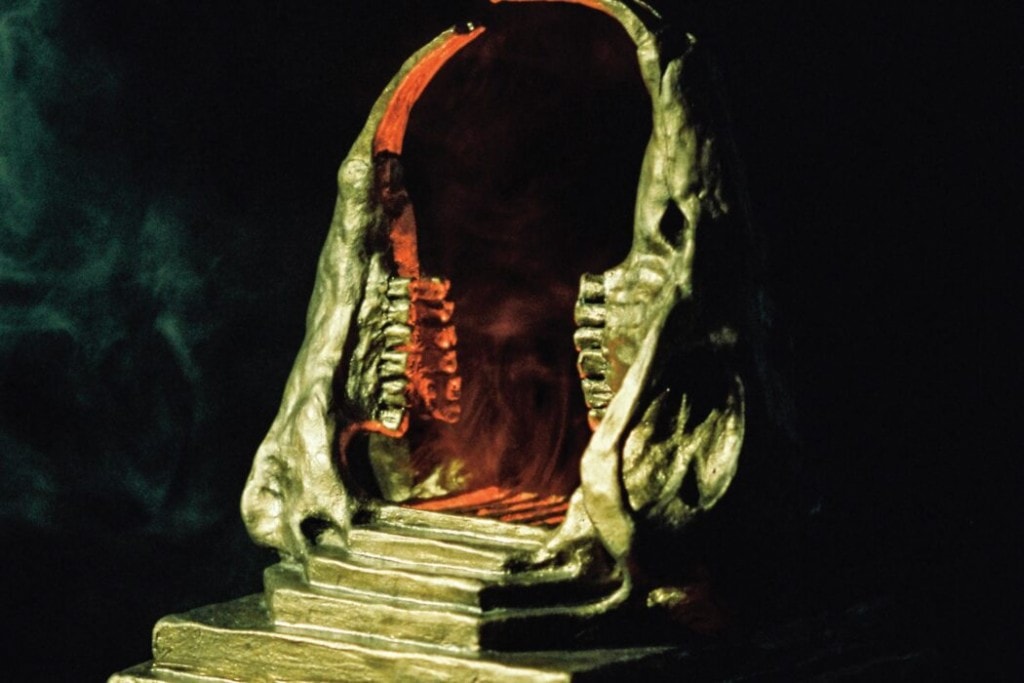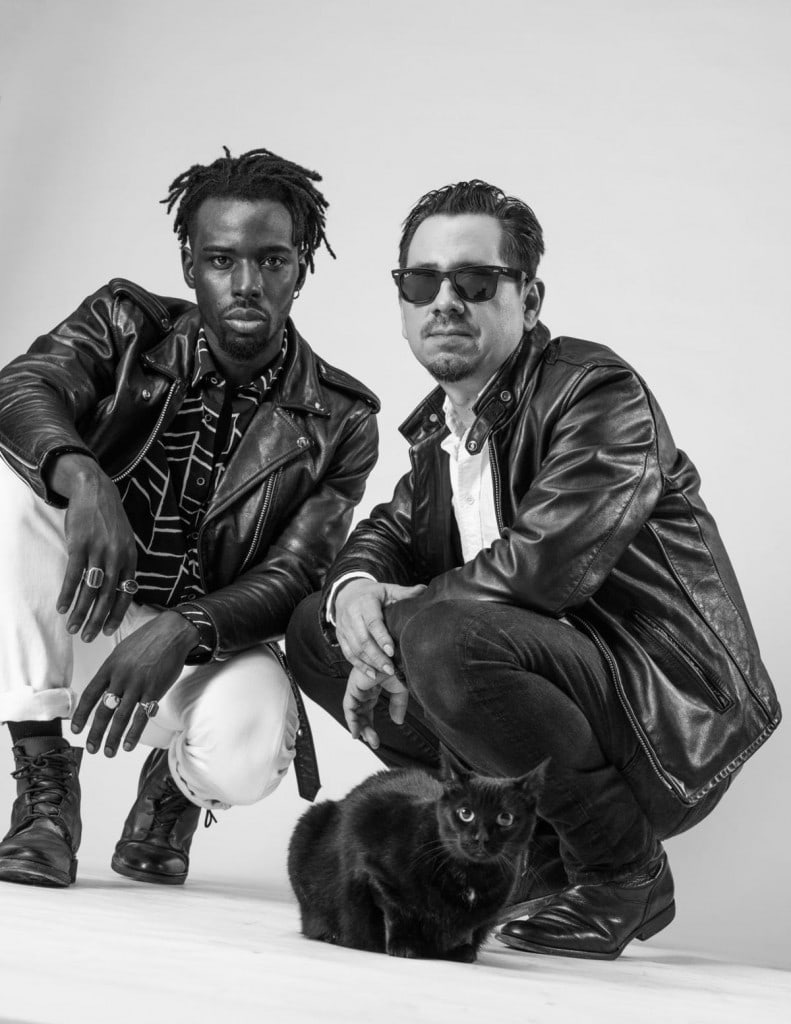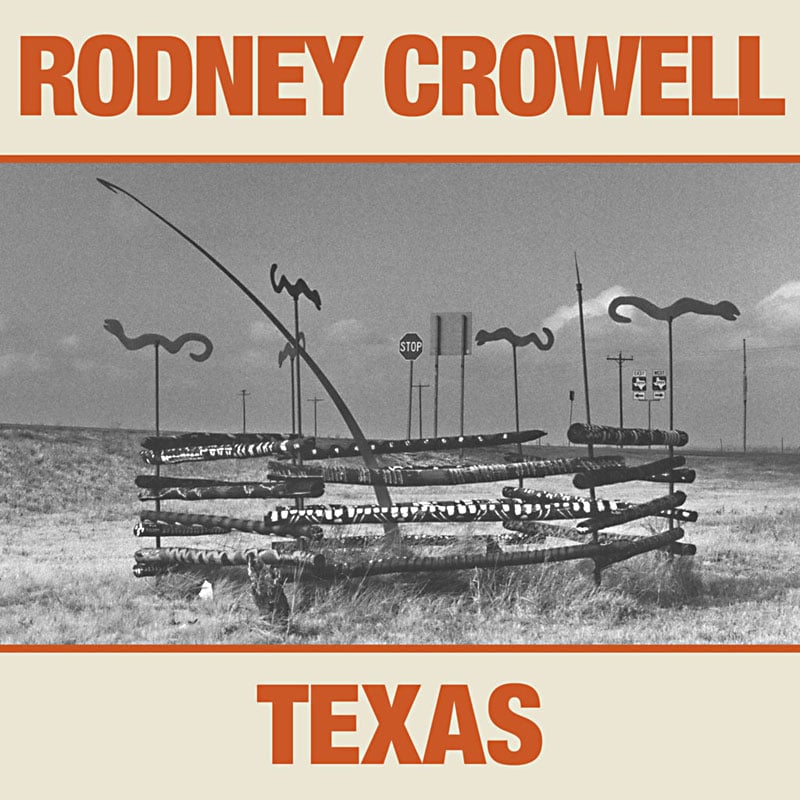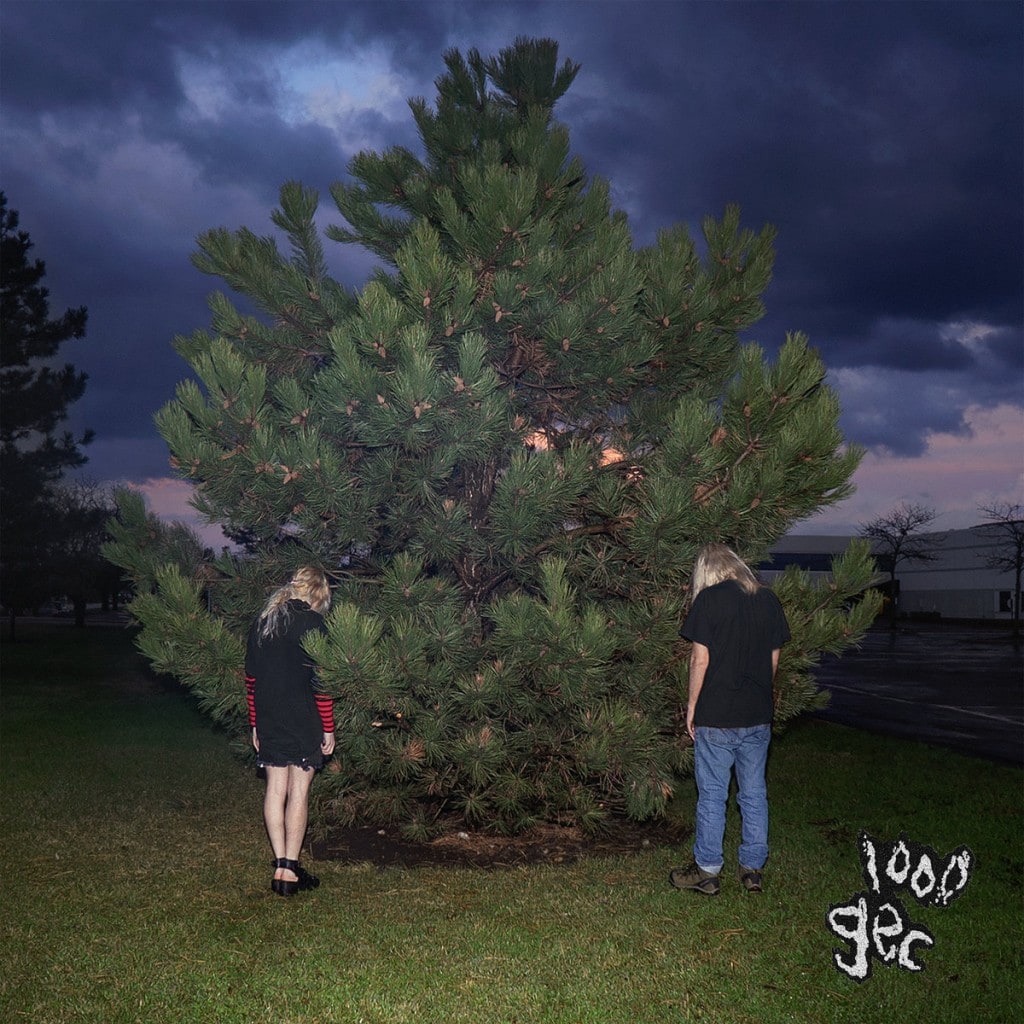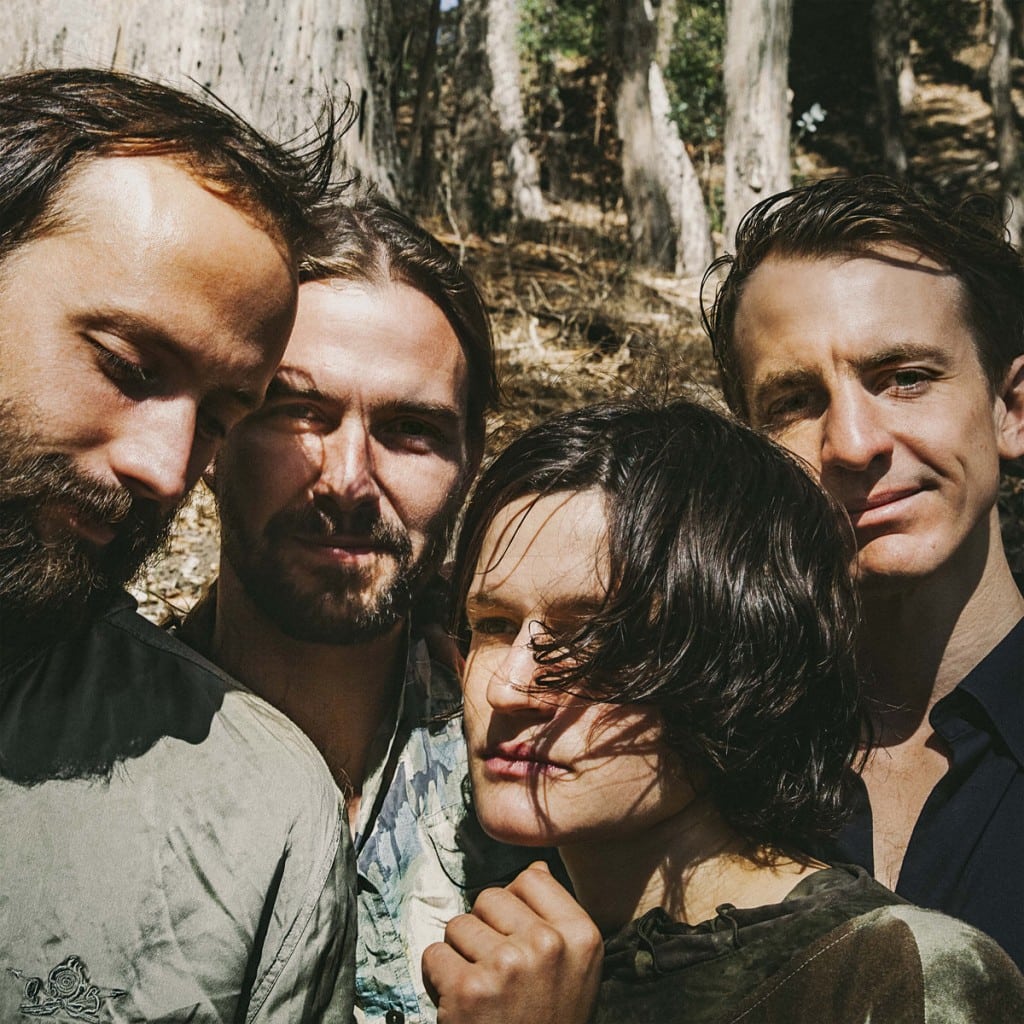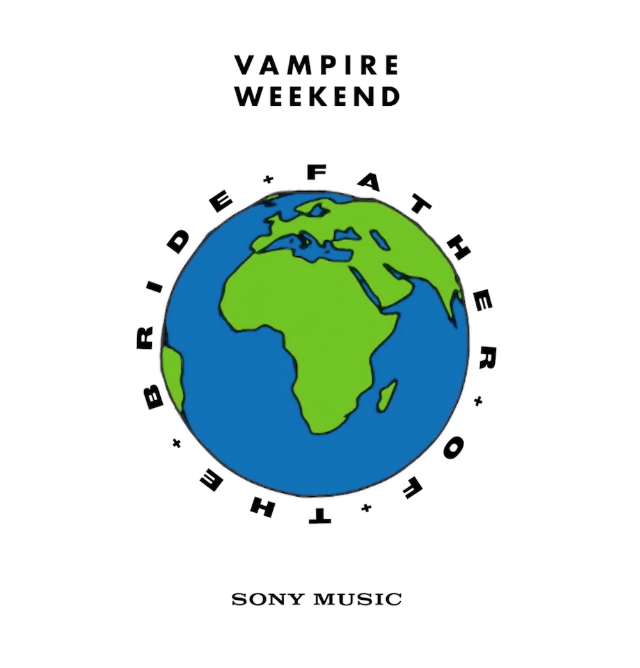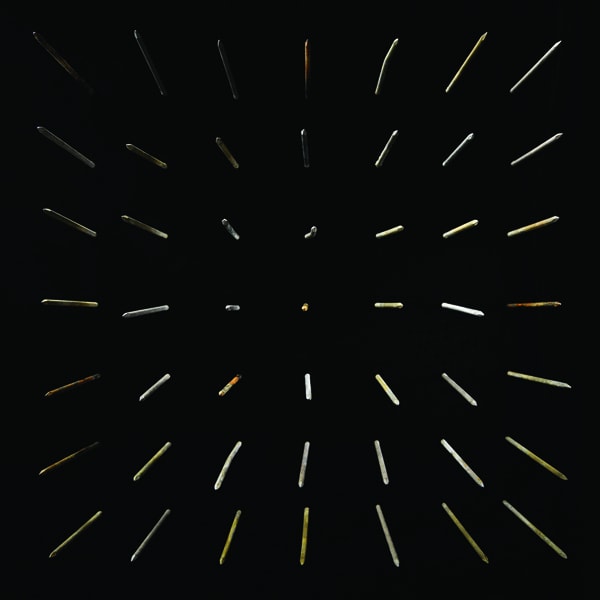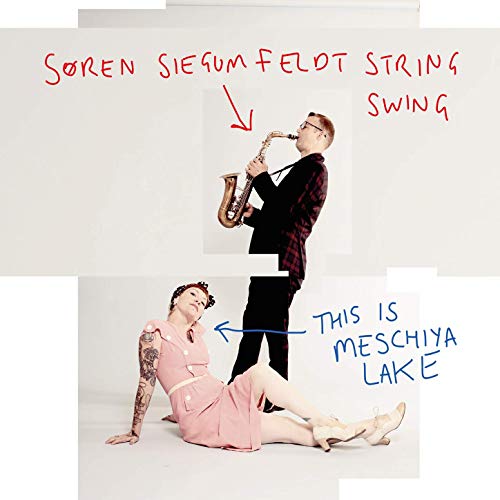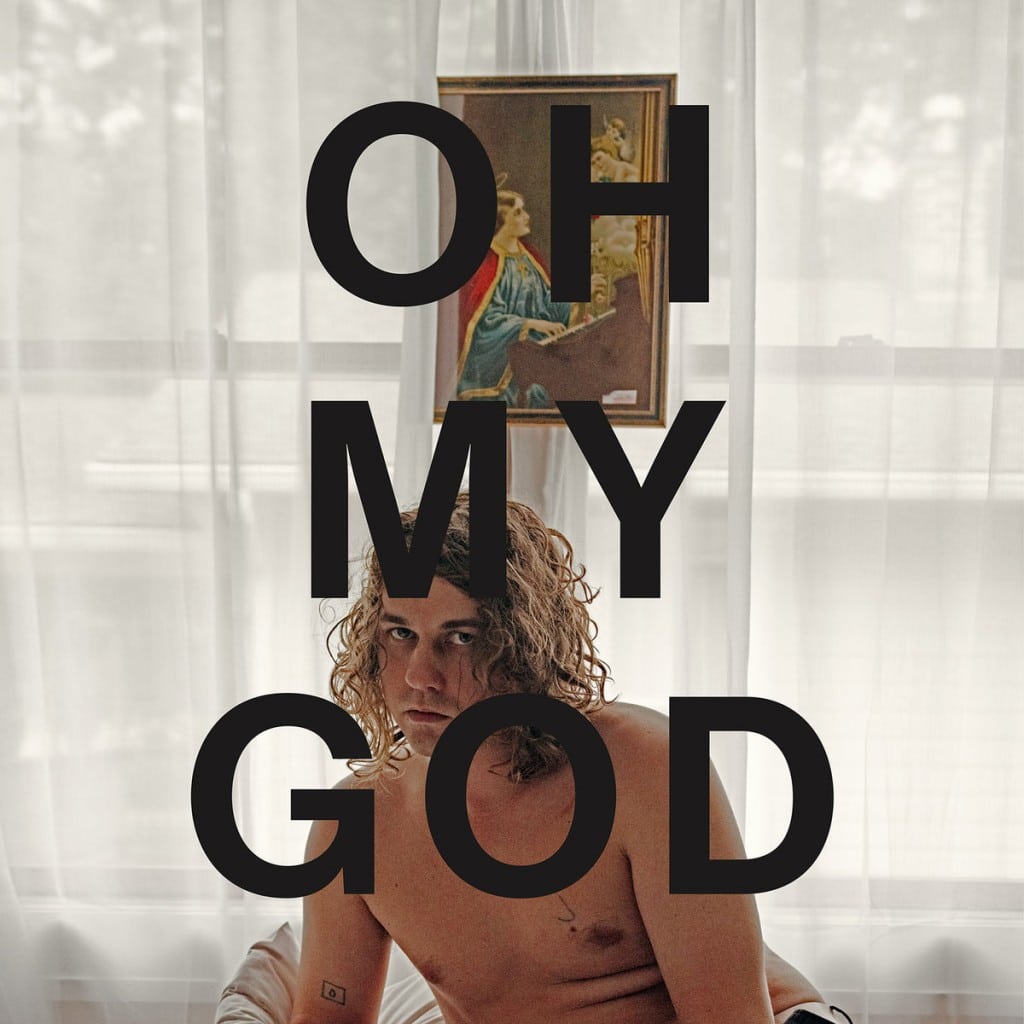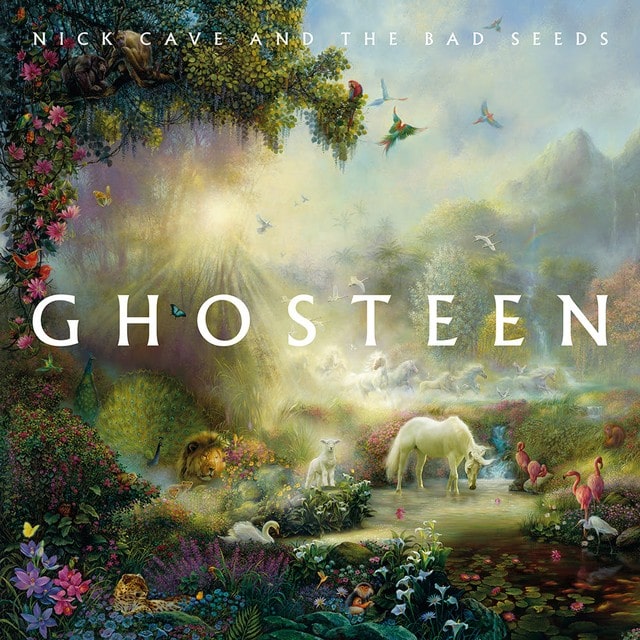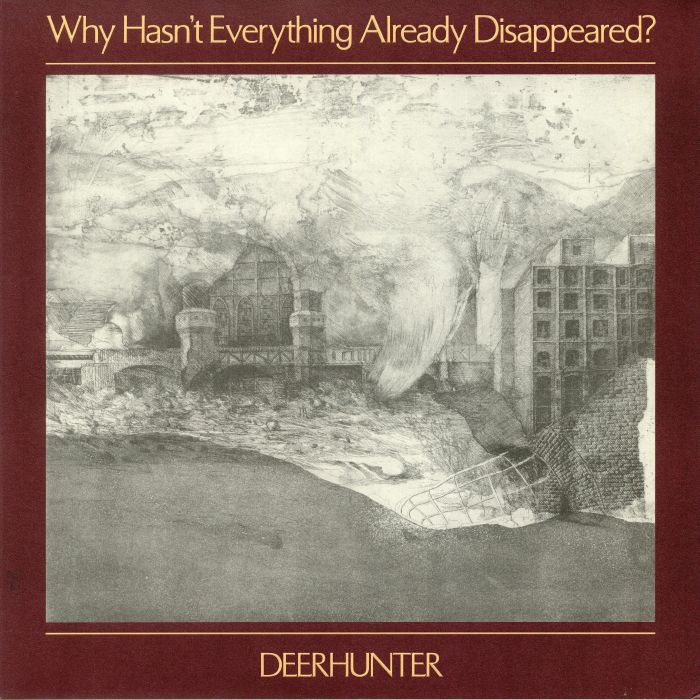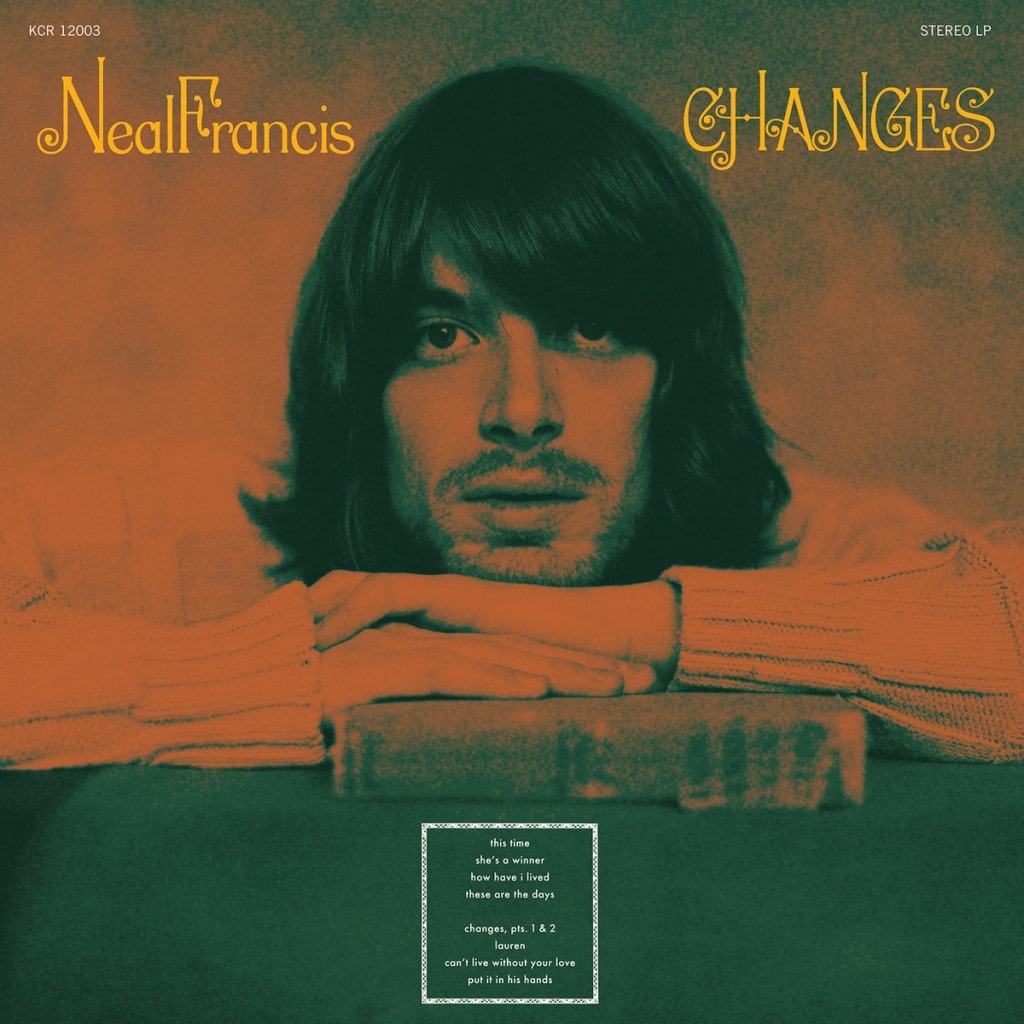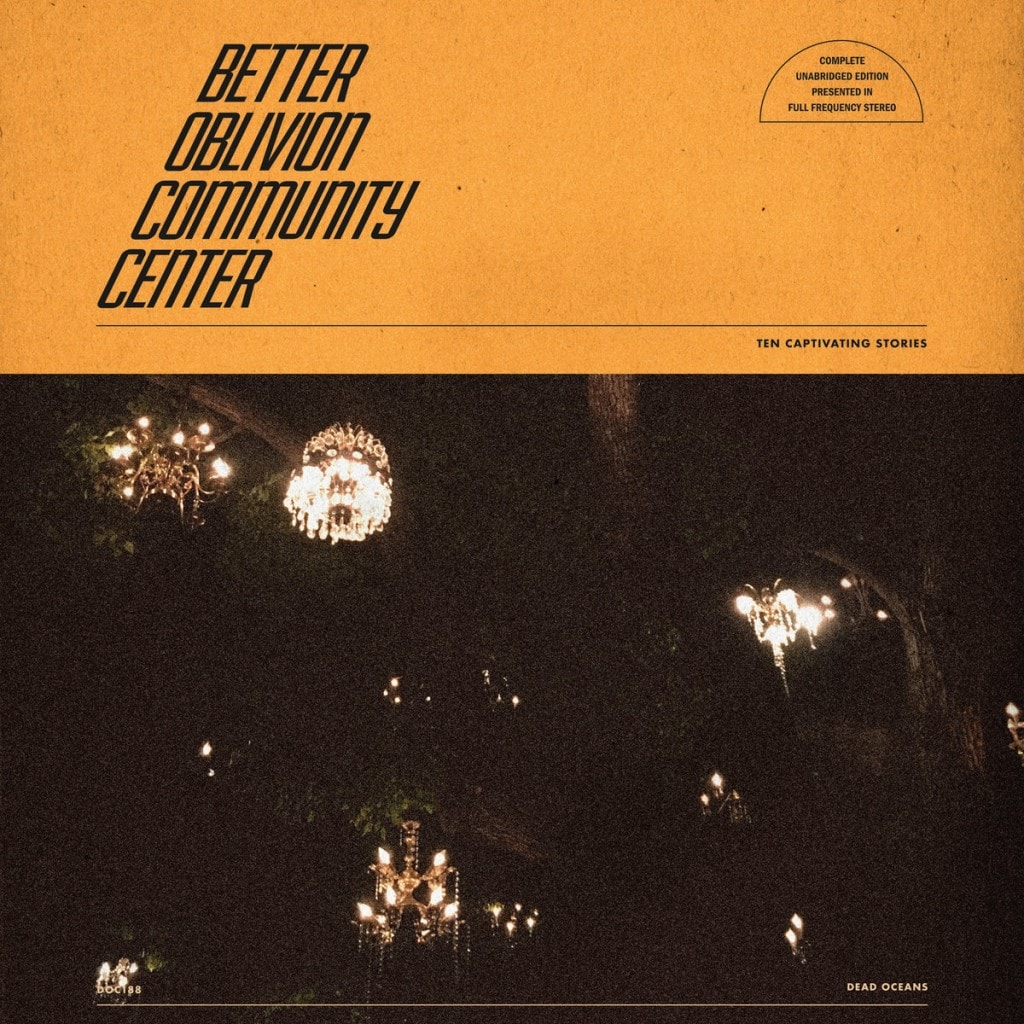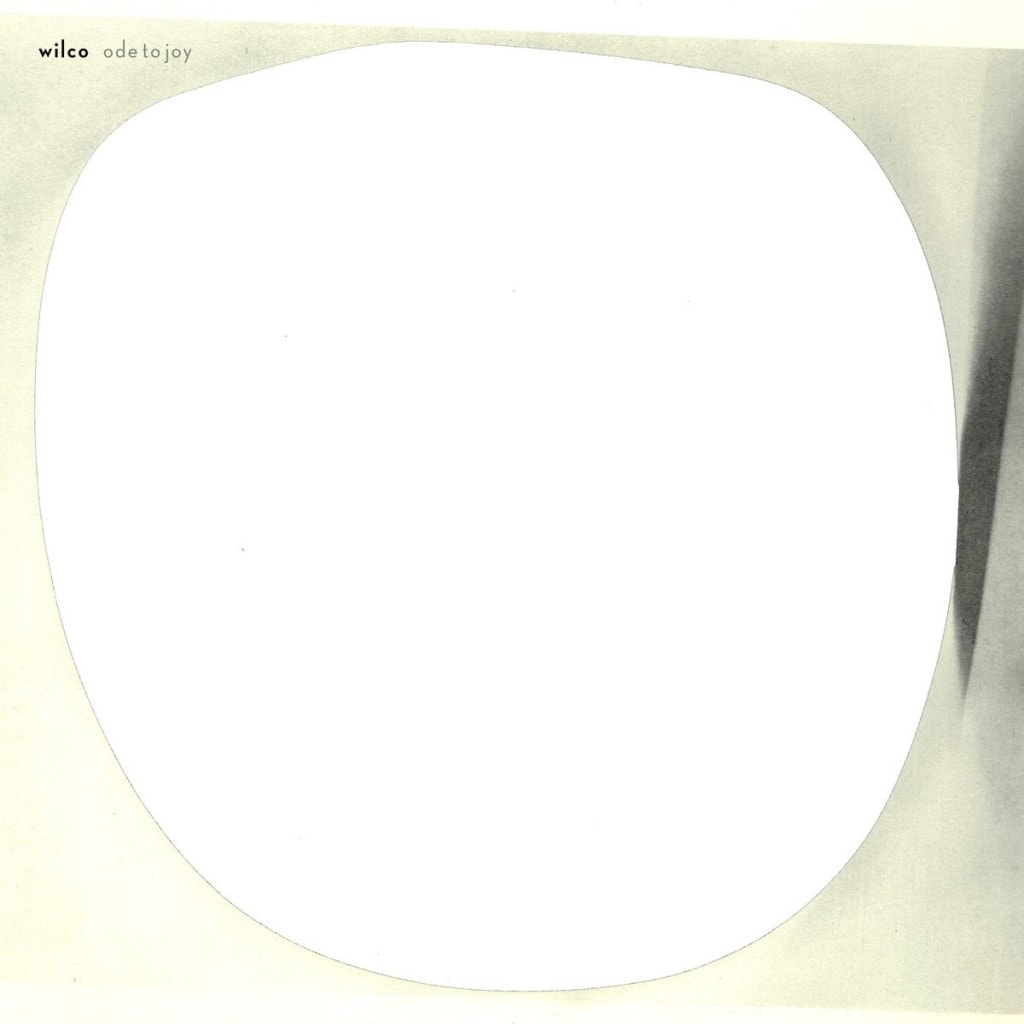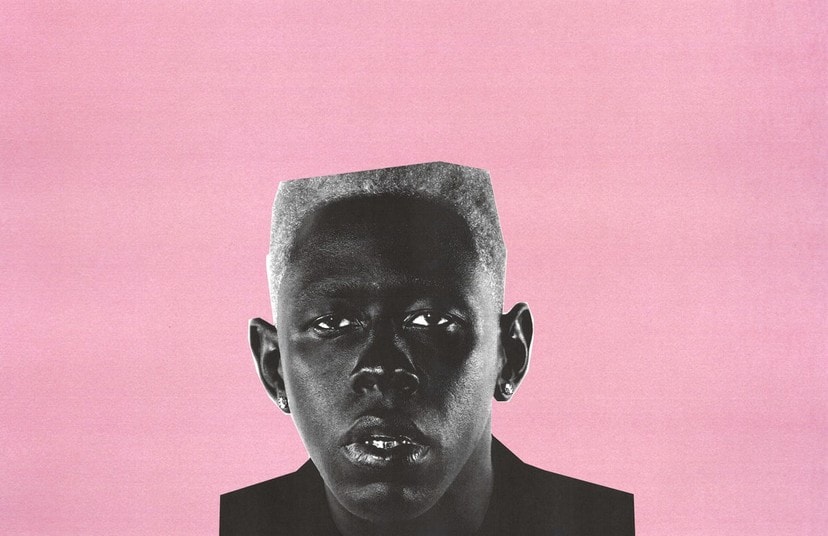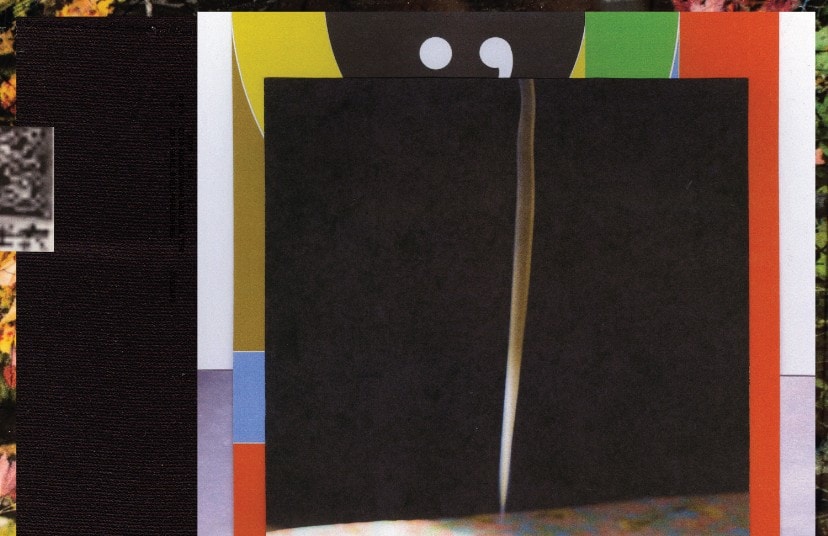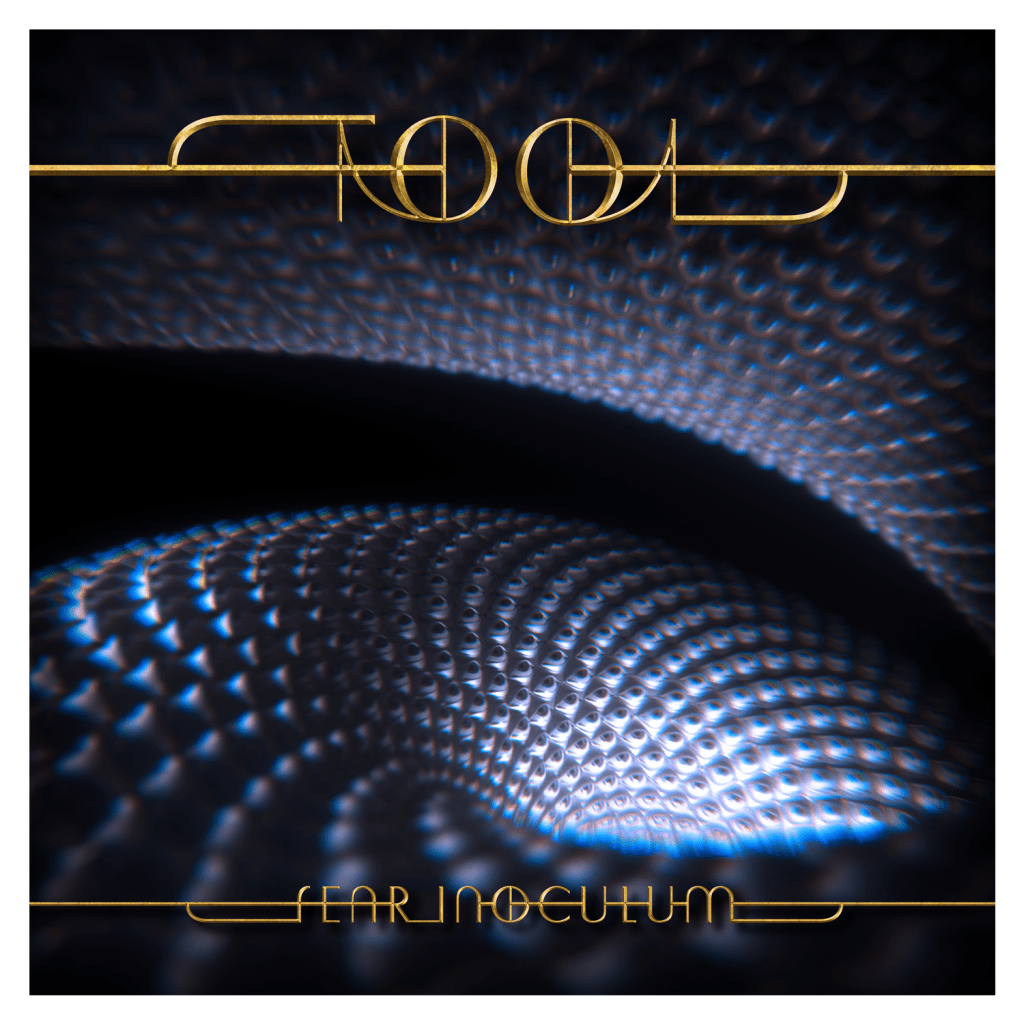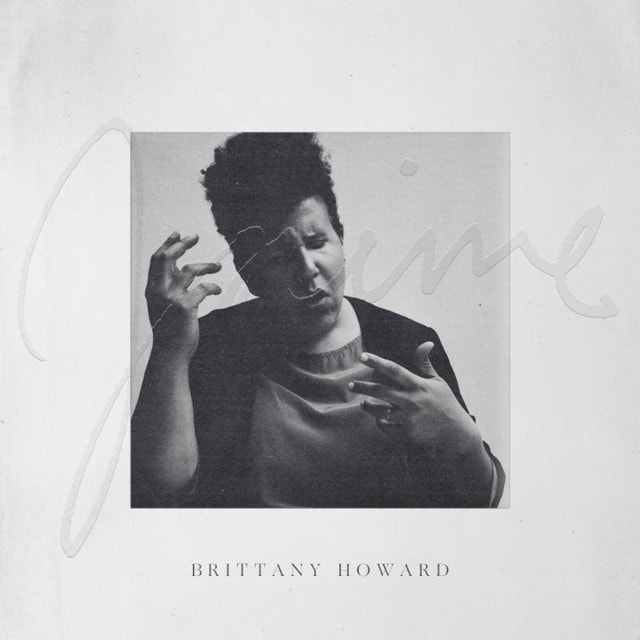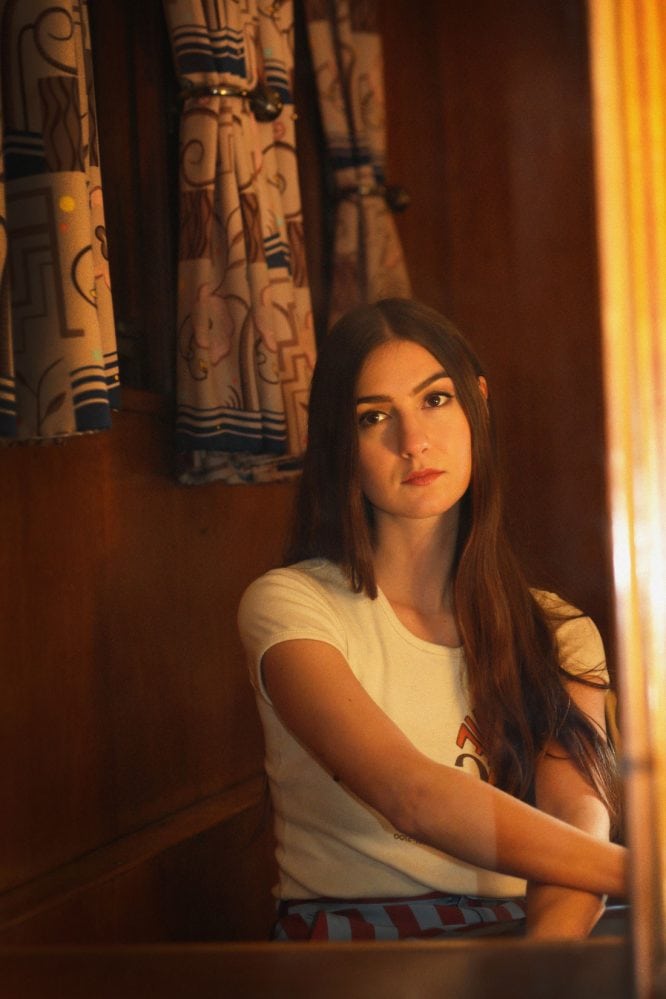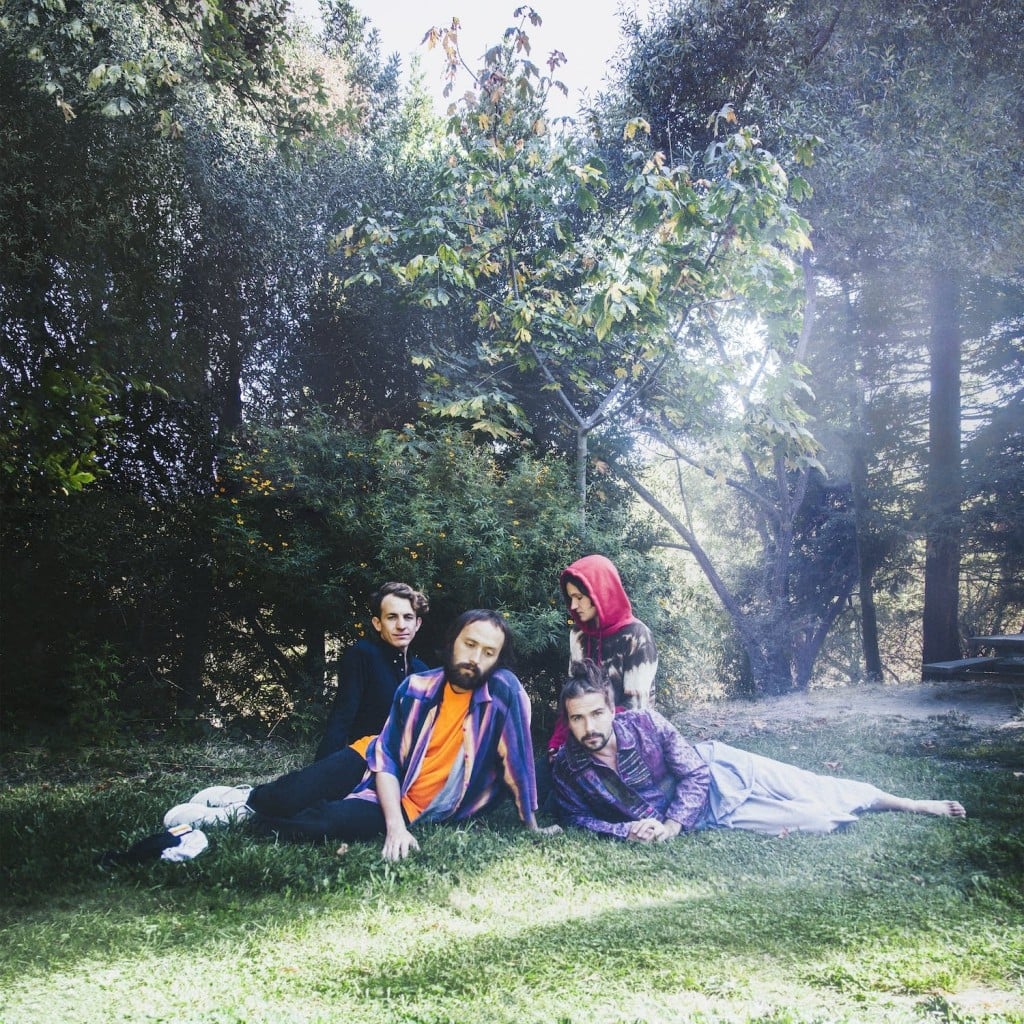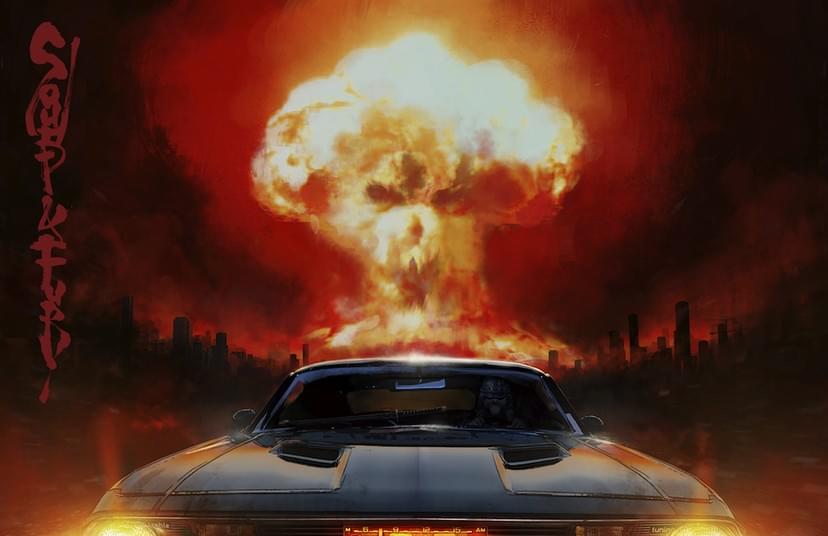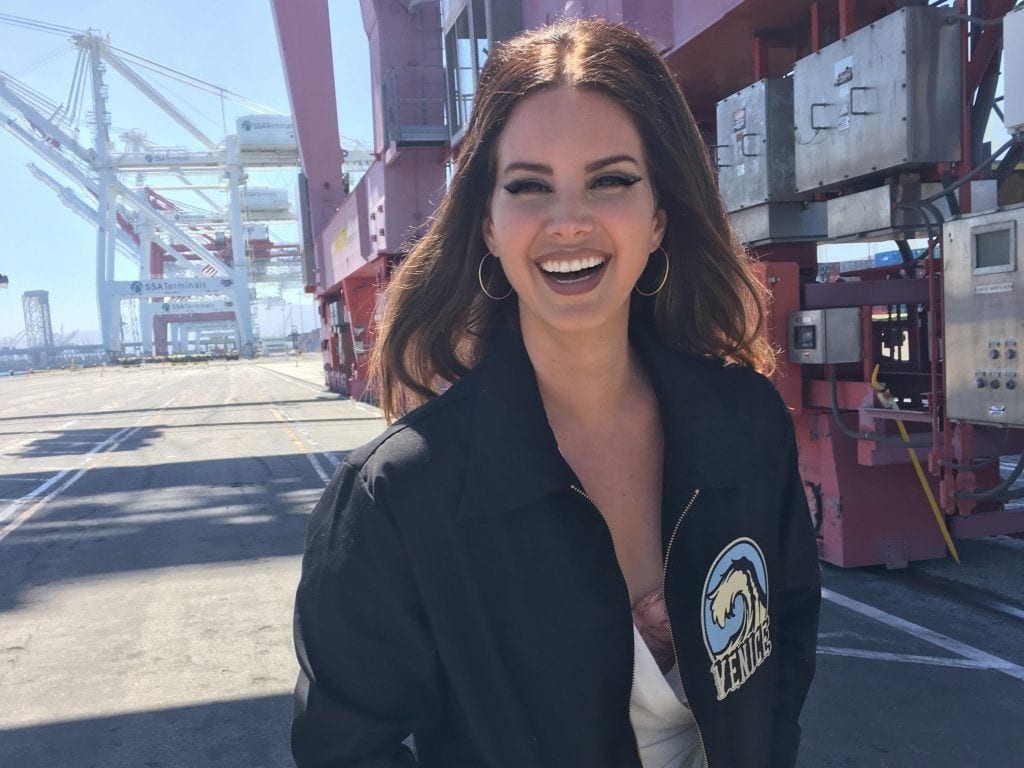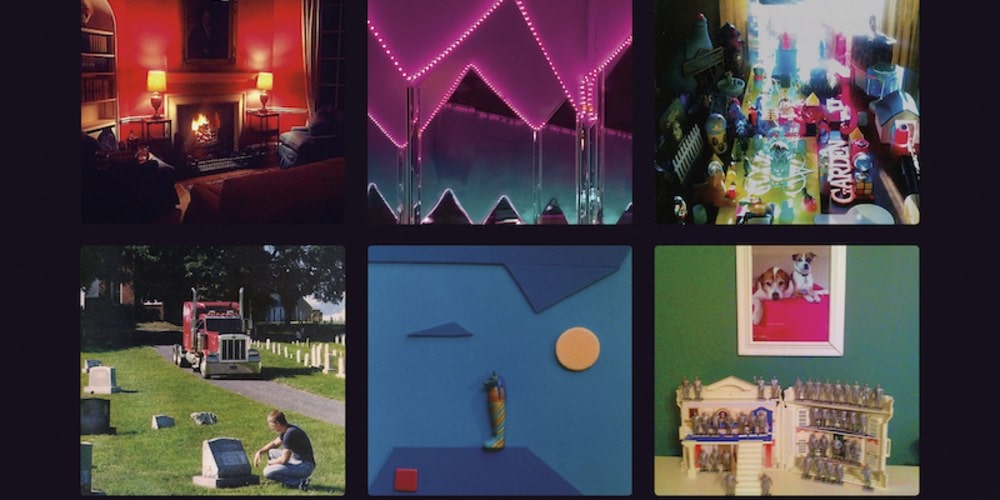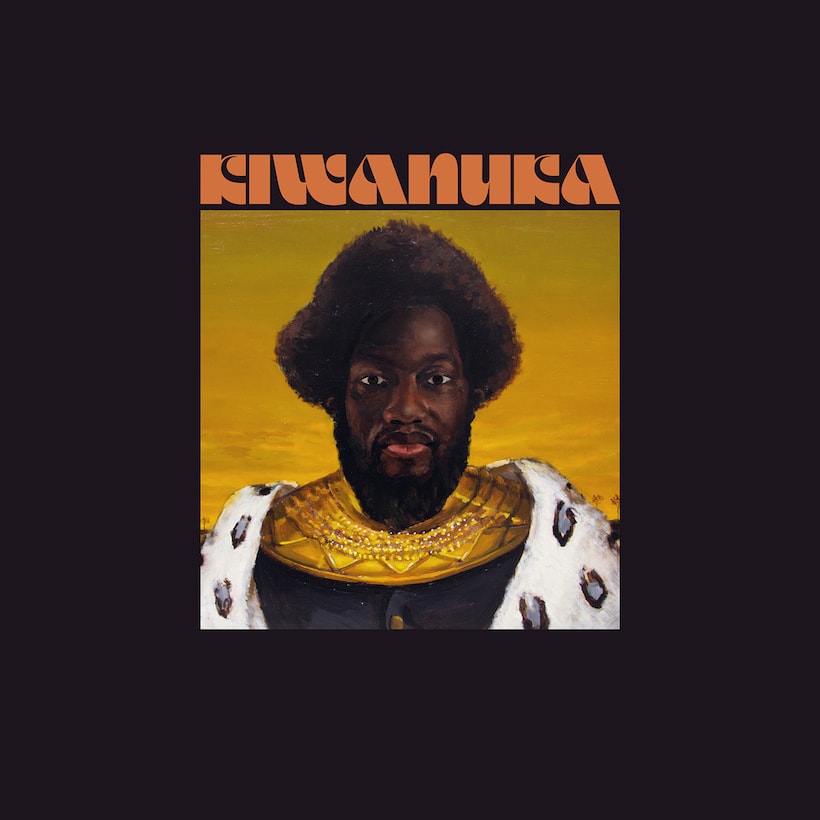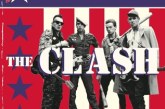35. Thom Yorke – Anima
Trading the spooky classical he composed last year for the soundtrack to horror film “Suspiria” for experimental electronica on “Anima,” the Radiohead frontman’s third solo album is a grossly absorbing and rewarding listen. Immaculately produced as you might expect, rich layers of synth, effects and beats marry to create a warm, cozy environment for Yorke to punctuate with jarring samples and his patented ethereal musings. It’s an excellent effort from a performer who continues to age gracefully like a fine wine. – Matt Rankin
34. Freddie Gibbs & Madlib – Bandana
Not long after the release of their debut album, “Pinata,” Madlib told us about “Bandana,” a sophomore album with Freddie Gibbs that would feature beats originally intended for Kayne West’s “The Life of Pablo.” There’s a magic in this duo’s ability to combine their dynamic personalities and musical styles to create a truly original hip-hop album. Madlib’s playful beats are drenched in soul, going deep in his catalog to create music that is playfully innovative. He’s not afraid to switch the beat in the middle of a song or use his deep sample collection to drive the hook. Gibbs proves he can rap on anything, bringing his authentic and improved lyricism to each track, with raw honesty and dynamic rhythms. The chemistry between the two is near perfect, creating timeless songs that pay tribute to the old school, while at the same time raising the expectations for modern, quality hip-hop. – MM
33. Jim James, Teddy Abrams and the Louisville Orchestra – The Order of Nature
This collaboration is basically the Forecastle festival in Louisville, KY in album form. The My Morning Jacket frontman and Abrams are a match made in Heaven and they’ve been sharing stages for years together in the Bluegrass state. At 32 years of age, Abrams is the youngest conductor of a major orchestra in the United States. If the success of this rock opera is any indication, we wouldn’t be surprised if these entities joined forces again. –Rusty Odom
32. King Gizzard and the Lizard Wizard – Infest the Rats Nest
Another year brings another collection of King Gizzard and the Lizard Wizard albums. “Infest the rats nest” is the second album from King Gizz this year and easily their most aggressive yet. Heavy bluesy rock anthems fill the album from start to finish, and it’s an enjoyable ride worth repeat listens. –Zac Fallon
31. Peter Cat Recording Co. – Bismillah
If Sinatra lead a psychedelic swing band through a limitless lineup of genres, you would end up with Peter Cat Recording Co.’s 2019 album, “Bismillah.” At times jazz, disco, indie rock, folk, swing and big band, and with lyrics that go from dreamy and wistful, to political and introspective, to outright silly, this PCRC album leads the listener on an unpredictably delightful journey. Bismillah is an album that will be easy to look back upon fondly for years to come.
30. Black Pumas – Black Pumas
Nominated for Best New Artist at the 2020 Grammy Awards, the Austin-based duo of Adrian Quesada (formerly of Grupo Fantasma) and Eric Burton has exploded over the past few months, bringing a fresh perspective to the retro-soul scene. Their self-titled debut is filled with nods to classic Motown, such as on the popular “Colors,” delivering catchy choruses and terrific harmonies with a subtle beauty. Quesada and the band produce a vintage soul that sounds both classic and modern, using electric piano, jazzy horns and bluesy bass lines in a polished way. Burton is the true star with an emotional and captivating voice, naturally drawing comparisons to Otis Redding and Sam Cooke. Black Pumas thrives with an artistic simplicity, avoiding cheap thrills to produce high quality, authentic music that is deeply rooted in the history of soul. – MM
29. Rodney Crowell – Texas
It’s an easy thing for an artist to make the star-studded duet album: call in some favors, record a novelty tune, a cover by a recently deceased elder statesman, a look back at your childhood. Cue the accolades. Because duet albums are so formulaic, I can count the ones that actually rise to the level of art on my thumbs. “Texas” is a duet album, with guests including Ringo Star, Billy Gibbons, Steve Earl, Vince Gill, Lyle Lovett and many more, but it’s more than that. It’s a ode to both the beauty and the strangeness of Crowell’s home state. “The Border” comes across as an outtake from Springsteen’s best cuts on “Ghost of Tom Joad.” “Brown and Root” uses Earle’s raspy drawl and political sensibilities to brilliant effect. Starr transforms “You’re Only Happy When You’re Miserable” into a cavern club classic. And yet, somehow, the album never becomes overwhelmed by its guests, remaining a low key, clever and introspective, and distinctly the product of Crowell’s unique vision. The only exception is the out of place Billy Gibbons duet “56 Fury,” which sticks out like a sore thumb. Since it is also the best ZZ Top song since Eliminator, all is forgiven. –Bill Foster
28. 100 Gecs – 1000 Gecs
The first question I and several others asked when they heard 100 gecs is, “Do I hate this?”. Heavy on the autotune, 100 gecs doesn’t defy genres. They pick and choose genres to deliver lyrical genius like “You talk a lotta big game for someone with such a small truck.” All the individual parts of 100 gecs sound wrong, but somehow their sum sounds pretty darn cool. –ZF
27. Maggie Rogers – Heard it in a Past Life
Bright, bouncy, and packed with the kind of crescendos that dare you to sing along, Maggie Rogers’ major label debut, “Heard It In a Past Life,” arrived in January to fans who have followed the singer-songwriter since her single “Alaska” was released in 2016. A snapshot of Rogers’ whirlwind rise from NYU student to SNL headliner goes something like this: Rogers participated in an NYU masterclass featuring Pharell who, in a moment of raw emotion, was moved to tears by her recording of “Alaska.” A video of the event went viral and Rogers suddenly found herself swarmed by major labels and industry spotlights. Flash-forward to 2019 and the singer’s effervescent debut captures the exuberant textures and pretty, synth-driven choruses that shot “Alaska” to the top of folk’s radars. Introspective lyrics exude an awkward self-awareness that slips into everyone’s consciousness at one point or another, which makes “Heard In an a Past Life” — and Rogers herself — a relatable, poppy escape for when you need a little sunshine to seep in. – Carey Hodges
26. Big Thief – Two Hands
An almost antithetical response to their earlier release of “U.F.O.F,” Big Thief grounds itself with “Two Hands.” Adrianne Lenker’s vocals on tracks like “Not” and “Shoulders” showcase the desperation the album conveys. Less cerebral, more personal, “Two Hands” plays almost like a live album. –Trevor Kerr
25. Vampire Weekend – Father of the Bride
Tool weren’t the only comeback story in 2019 as Vampire Weekend released their first album in six years. Ezra Koenig and company created a modern pop masterpiece in “Father of the Bride,” which clocks in at 18 songs in an hour. Now a trio, Vampire Weekend’s sound is still as lush as it’s ever been but without much of the guitar rock that made them famous in the early aughts. Instead, “Father of the Bride” shows a more experimental side to Vampire Weekend albeit with familiar hypnotic melodies as evident on the track, “Flower Moon.” It’s nice to see Vampire Weekend take a step back and reflect rather than continue to get “bigger” and get swallowed up in the process. With their latest album, Vampire Weekend proves to everyone that they are still the smart Ivy League darlings that set the world on fire nearly a decade ago, albeit a bit older and wiser. –John Flannagan
24. clipping. – There Existed an Addiction to Blood
Experimental rap from Daveed Diggs (Hamilton, Tour de Pharmacy) is nothing new. This is the 3rd full length album released by clipping., and easily their most polished outing yet. Minimalist beats and hooks working with Diggs machine gun flow, give us something that feels a little new, while being entirely primitive. -ZF
23. Soren Siegumfeldt’s String Swing – This is Meschiya Lake
Meschiya Lake is the kind of women that only New Orleans seems to produce. She’s fierce and tatted, intelligent with May West’s sense of style and owns a voice that can be heard four blocks from her spot busking on Royal Street. Soren Siegumfedlt is a Danish sax player playing a rarely heard C-melody saxophone who is infatuated with Django Rhiehardt and would fit in perfectly at Big Ears. Information on this record is hard to come by but apparently Siegumfedlt discovered Lake through a documentary about musicians after Katrina and invited her to Copenhagen to record. Regardless of how it came about, the result is my record of the year. The originals are fantastic, especially “Stormy Daniels” and “Elephants,” political and humerous in turns. The four covers, Nick Cave’s “Up Jumped the Devil,” Townes Van Zandt’s “Lungs,” Afroman’s “Because I Got High,” and Leonard Cohen’s “Everybody Knows,” are each among the best cover of that artist I have ever heard. In particular, “Lungs” with its solos by Syrian bamboo flute master Moslem Rahal, is a revelation. Swinging and serious by turn, full of Lake’s soaring vocals and incredible solos in every song, this album deserves a much broader listening base than it has so far acquired. –Bill Foster
22. Kevin Morby – Oh My God
Self described as a “non-religious religious record,” Kevin Morby’s “Oh My God” revolves around juxtaposition. A mixture of Bob Dylan and The Band, early Springsteen, and piano driven gospel, this concept album is a pleasure to listen to from start to finish. From the almost whispered “Nothing Sacred/All Things Wild” to the shouted lines of “Piss River,” Morby’s fifth record at times sounds like a preacher unsure of his faith, and it is a wonderful ride. “It’s not a born again thing,” Kevin Morby says, “It’s more that ‘Oh My God’ is such a profound statement we…use multiple times a day and means so many different things.”
21. Nick Cave – Ghosteen
Lyrically dense and musically cinematic, Cave’s latest effort, a rare double album, finds the celebrated goth king emerging from a consuming darkness and beginning to explore themes of catharsis and hope. The passing of Cave’s longtime keyboardist last year followed the tragic 2015 death of his teenage son, and the name and certain passages of “Ghosteen” seem to address both losses. The title track, in particular, reads as a heartbreaking yet wonderfully moving tribute to Arthur Cave. It’s a heavy listen, for sure, but one that rewards those who do with numerous moments of stark beauty and all-encompassing love. – MR
20. Angel Olsen – All Mirrors
Olsen’s latest album is substantive proof of her continued progression as a performer and of her burgeoning status as an important figure in modern music. Each successive release finds her improving upon the last in incremental yet significant ways. 2016’s “My Woman” was striking, but “All Mirrors” is demonstrably better vocally, lyrically, musically and in terms of the artist exhibiting confidence and the potential for longevity.
Incorporating strings, synth and subtle pop elements into a smart indie-rock sound, the record in both title and practice reflects the current musical landscape in which lines between genres are blurred. However, Olsen doesn’t so much smudge them as erase them here, as the disparate parts come together so naturally and effortlessly that what is most noticeable about the album is its cohesiveness and strength as a whole. And it ranks amongst the year’s very best as a result. – MR
19. Strand of Oaks – Eraserland
Strand of Oaks do not get the recognition they deserve at this point in their career, which spans ten years and seven LP’s. That should change after Timothy Showalter and company’s latest album, “Eraserland,” an album that pulls all the punches of alt-country but rocks hard enough to stay in line with their previous efforts. Showalter’s croon is a mix of Ben Bidwell (Band of Horses) and Jim James (My Morning Jacket) with the same amount of passion and introspective lyrical content that one would find with either of those contemporaries. “Eraserland” has the hooks, ballads and even some acoustic guitar and harmonies, and it makes sense considering members of MMJ played on the record. In the end, “Eraserland” leaves you with all the feels as themes of “what am I doing with my life?” With their latest effort, we should continue to see Strand of Oaks rise on the summer festival lineup posters. -JF
18. Deerhunter – Why Hasn’t Everything Already Disappeared
Deerhunter have matured and evolved from their early shoegaze efforts (“Microcastle” & “Cryptograms”) into more accessible slightly fewer obscure tunes. While Deerhunter haven’t really achieved commercial success, the themes Bradford Cox and company expand on now include climate change and neo-nationalism as opposed to isolation and personal reflection that littered past efforts. Deerhunter feels now less of a “sound” and more of a perspective that runs through their work. New Deerhunter tunes have the feel of Bowie or Lou Reed which include piano harmonies, complex themes and keep the listener guessing at what may be next. This new recipe seems to be working just fine for Deerhunter and who knows if they’ll ever return to their early indie roots but rather keep evolving and aging like fine wine. – JF
17. Neal Francis
Perhaps more-so than any other artist on this list, Neal Francis is a name to watch in 2020. And that’s saying something. One track from “Changes” might seem warped straight from the 60’s while the next might revisit the 80’s. All the while, this psychedelic funk soul train stays fun and each track rises as it scrolls from left to right. This is a fresh take on a proven formula that will remind listeners of Stevie Wonder, Electric Light Orchestra and Bozz Scaggs. The album begs for listening in the live setting, and Knoxville will get that chance on Jan 14th when Francis hits the Barley’s stage in the Old City.
16. FKA Twigs – Magdalene
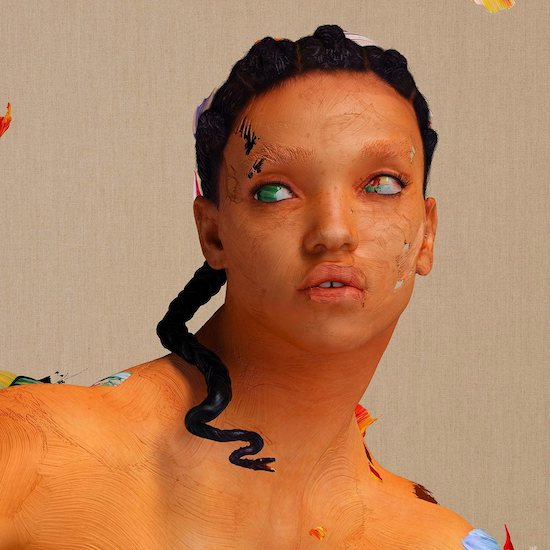
Label: Young Turks
Just the second proper album from the English artist, “Magdalene” is such a stunning, carefully constructed and accomplished statement that it would seem to suggest that the five years that elapsed between her 2014 debut and its release were fully spent getting it just right. Stylistically, it’s absolutely bonkers, combining threads of R&B, experimental, hip-hop, alternative, opera, trip-hop and world music and weaving them into a complex, luxurious tapestry of sound. Boldly feminist in tone and content, the album at times recalls the work of luminaries like Kate Bush, Tori Amos, Björk, Joanna Newsom and Grimes, but it stands on its own as the unique vision of a singular artist who, armed with a killer soprano, is poised to slay the masses for years to come. – MR
15. Better Oblivion Community Center – Better Oblivion Community Center
In one of 2019’s most notable collaboration efforts, Better Oblivion Community Center’s debut project is led by longtime indie rock hero Conor Oberst, with breakthrough singer-songwriter, Phoebe Bridgers. Bridgers crashed onto the indie scene in 2017 with her debut record “Stranger in the Alps,” a soothing yet brutally honest work that caught Oberst’s attention and sparked Better Oblivion Community Center. The self-titled album, released in early 2019 on Dead Oceans, is a diverse collection of songs ranging from casual folk ballads to sludgy indie rock jams, with lyrics fueled by loneliness and the right amount of hope for a better tomorrow. It’s a conversational record, the two’s vocals weaving together throughout to paint a different perspective from each side of the story. This approach brings a unique duality to the songwriting and depth of “Better Oblivion Community Center,” which is delivered effortlessly by Bridgers and Oberst. Bridgers’ laid-back vocal styles complement Oberst’s sometimes abrasive, yet familiar vocals to make the record seem nostalgic and comforting, while also requiring the listener to be attentive to the conversations happening within. Stand out tracks: “Sleepwalkin’,” “Dylan Thomas,” “Didn’t Know What I Was In For.” – Katie Cauthen
14. Wilco – Ode to Joy
Small spaces can be claustrophobic or comforting – sometimes at the same time. With Wilco’s 11th album, “Ode to Joy,” the band meticulously constructs a series of these spaces, building tiny sonic rooms framed by Jeff Tweedy’s falsetto on a foundation of Glenn Kotche’s marching percussion. Both Tweedy and Kotche sketch the blueprint for the majority of the tracks. Tweedy is leaning into an empathetic, more direct writing style — something he alluded to in his 2018 memoir, Let’s Go (Before We Get Back), and in a series of subsequent interviews. And Kotche ditching the cymbals for steady bass drums and snares, slowly building space for Tweedy’s vocals to breath as he delivers lines like “I’m left with only my desire to change/So what I stay in bed all day?/I can’t escape my domain.” The album is low-key and poignant and, in this Wilco fan’s humble opinion, features some of their best material in years. Queue up “Quiet Amplifier,” “White Wooden Cross,” and “One and a Half Stars” to slip into a cozy headspace courtesy of Tweedy and company. -CH
13. Tyler, the Creator – Igor
“Igor” presents a continuation of Tyler, the Creator’s progression first displayed in 2017’s “Flower Boy.” He strays further from the abrasive, cacophonous rapping of his early career and well into the domain of R&B and even pop on some songs. Most of the tracks on “Igor” lack structure, with funky synths laying a framework that is continuously interrupted from all sides. Tyler interjects a verse of rapping here or there, uncredited guest verses fade back into the melody before you know they’re gone, and soulful hooks come and go abruptly. The trademark aggression of previous albums shines through in brief moments, but is quickly swallowed back by an ever-changing wall of synth-driven, pop-inspired sound. – Daniel Britt
12. Bon Iver – i,i
This American indie-folk outfit headed by Justin Vernon is no stranger to BLANK’s year end list. With only four full-length albums, the band won two Grammys in 2012, and is up for three in 2020, including Album and Record of the Year for 2019’s “i,i.” This album is humbler than the previous two, echoing the genuine feel and approachability of “For Emma, Forever Ago.” There’s a new, raw authenticity to the sound, bringing acoustic guitar, horns and piano back to prominence, blended delicately with the love for synths and autotune. There are nonsensical lyrics scattered throughout, but that also plays into what makes the album as a whole so approachable. Bon Iver’s success has never hinged on delivering lines that lend themselves to perfunctory repetition, but rather evoking emotion that is wholly incapable of being captured by coherent phrases. “i,i” functions as a landscape of experimental sound that touches on the intangible, yet familiar. – MM
11. Julia Jacklin – Crushing
Be still my heart—if you still haven’t found your go-to 2019 breakup album of the year (or want to dig a little deeper or less mainstream than Ariana Grande’s “thank u, next”), check out Julia Jacklin’s “Crushing.” The second effort from Sydney, Australia’s Jacklin, released on Polyvinyl in February 2019, taps into young love grown cold and raw feelings of self-realization following a long-term relationship. Finding oneself and self-image are revisited throughout the 10 tracks on “Crushing,” addressing the ups and downs of moving on from someone who was once closest to you. Jacklin‘s lyrics are charming and quirky, and her unique way of telling the stories on this record will stick with you. On “Pressure to Party,” Jacklin addresses pressures of social anxiety in a pop ballad that feels like a mix between Ben Folds’ “Philosophy” and Fiona Apple’s “Paper Bag.” “Crushing” is a gorgeous record, perfect for self-reflection and as easy to listen to as it is thoughtful. You will also probably want to make a new bright-green sweatshirt that says “CRUSHING” (see album cover). I already bought some iron-on letters. Stand out tracks : “Pressure to Party,” “Don’t Know How To Keep Loving You,” “Head Alone.” – KC
10. Tool – Fear Inoculum
The thirteen-year wait ended for Tool fans this summer when the prog metal pioneers decided to finally drop the much anticipated follow up to 2006’s “10,000 Days.” Fear Inoculum checks in at just over 86 minutes and feels like a continuation of “10,000 Days” with precise and complicated rhythm patterns and timings abound. Tool’s latest effort works best if taken in and digested in a single setting as each track flows into the next with remarkable detail and intricate, densely layered time signatures. It’s easy to dismiss the album as too complex but after further listens it’s easy to see that thirteen years was worth the wait. Standout tracks include “7empest” and “Chocolate Chip Trip,” complete with a Danny Carey one take drum solo. -JF
9. Brittany Howard – Jaime
The debut solo album from Brittany Howard (of Alabama Shakes) is undoubtedly her boldest and most experimental work to date. Her ability to be sporadic and adventurous, yet remain consistent and familiar, is a true art, creating a genre-less album with a sound that is truly original. Howard delivers her contagious and sincere energy through her voice, delivering these lyrically honest stories of reflection, discovery and progress with power and emotion. Each song has a distinct style, weaving through funk, jazz and rock, with a strong soulful foundation that is uniquely hers. The intricacy and attention to detail is impressive, with vocal harmonies and progressions utilized beautifully to compliment the ever-changing style and tempo of the album. “Jaime” brings a new, big sound for Howard that allows her personality to shine, accelerating her career in a new direction that is bound for festival main stages. – MM
8. Weyes Blood – Titanic Rising
Natalie Mering’s fourth effort under the moniker Weyes Blood somehow manages to be even more haunting and sonically grandiose than its predecessor, 2016’s “Front Row Seat to Earth.” “Titanic Rising,” released April 2019 on Sub Pop, could be described as a mermaid opera from the likes of Brian Wilson, but there is no one who could bring this undersea score to life better than Mering, a self-described “nostalgic futurist.” The record’s vocal harmonies are drenched in dreamy reverb, held down by piano-driven balladry, with sorrowful lyrics dripped throughout the landscape like tears on a “Yellow Submarine” LP. If you have yet to find the appropriate dream pop record needed to float you into 2020, “Titanic Rising” is for you. And Natalie Mering is probably a mermaid. Stand out tracks : “Everyday,” “Something To Believe,” “Movies.” – KC
7. Billie Eilish – When We Fall Asleep, Where Do We Go?
Billie Eilish is a 17-year-old bada**; an unapologetic picture of how her generation is channeling their anger about the state of the world into wonderfully bizarre and powerful art. In Eilish’s case, that art translates into woozy, dark pop songs that tackle topics that span from night terrors to Xanax to climate change. Eilish’s music is equal parts napalm and nuance, her hushed, sometimes saccharine vocals layered over co-writer, brother, and producer Finneas O’Connell’s pulsing beats that incorporate found-sound elements like a dental drill and crunching glass. Similar to O’Connell’s production, Eilish lyrics are intimate in a way that resonates beyond the teen set, with the singer fiercely delivering lines like, “All the good girls go to hell/’Cause even God herself has enemies/And once the water starts to rise/And heaven’s out of sight/She’ll want the devil on her team.” On stage and in videos, Eilish turns up the horrorcore with bloody tears, nightmarish sets, and the refusal to conform to Top 40 norms. If Eilish is any representation, I’d say the kids have it figured out. -CH
6. Big Thief – U.F.O.F.
If you were to try to count the number of hooks the Berklee-educated indie-folk band embedded in its outstanding third album, you’d lose track pretty quickly. (“Cattails” alone would undo you.) Start to finish, “U.F.O.F.” is genuinely affecting, begging for repeated plays and revealing fresh details with each one. Occasionally, a record’s cover art will accurately prepare listeners for where the music will take them. This one, which features the band posing in an idyllic forest setting with overexposed sunlight streaming through the trees, recalls lazy, hazy days of yore spent perusing the AM dial. The bubbling beauty of songs like the title track, “Century” and “Strange” hearken back perfectly to those simpler times and suggest a group occupying a specific, unified headspace and completely in control of its artistic direction. – MR
5. Sturgill Simpson – Sound & Fury
With his fourth studio album, Sturgill Simpson subverts the expectations of his fans and critics alike. Part synth-pop, part psychadelic rock, “Sound and Fury” is purposely not a country album. Swapping steel guitar and twang for synthesizers and distortion, Simpson bounces between disco and 80’s boogie-rock. “Sound and Fury” is a welcome diversion from his previous albums without sacrificing any of the songwriting fans have come to love from Simpson. –TK
4. Lana Del Rey – Norman Fu**ing Rockwell
Although Lana Del Rey seems as transfixed as ever with an almost mythological American nostalgia, “NFR” finds her seeing through the veneer with a not-quite-jaded cynicism. There is a confident, collected demeanor throughout the album that showcases a sense of clarity in the face of impending doom. She is not the victim of her romantic misgivings, instead viciously bemoaning the shortcomings of her partners. Similarly, while still glamorizing a very Rockwellian America, she dispassionately laments the death of the very vision she is idealizing. Forgoing the sentimental, Del Rey ultimately attacks the gloom with enough poise that it comes off as a hopeful enthusiasm, leading to the best album of her career. – DB
3. Purple Mountains – Purple Mountains
In one of the most tragic stories in music this year, we were also gifted one of the most beautiful pieces of work from the late David Berman with “Purple Mountains,” released under the moniker of the same name. The widely loved and respected Silver Jews frontman, artist and author, Berman, released his first studio release since 2009 in July 2019, on his longtime label Drag City. The record addresses depression and hopelessness in heartbreaking pop songs that contradict the subject matter in tone, with “All My Happiness Is Gone,” “Margaritas at the Mall” and “Darkness and Cold.” The record is welded together perfectly with slow burning grooves on songs such as “Snow is Falling in Manhattan” and “Nights That Won’t Happen,” the latter of which delivers the chilling, recurring line “the dead know what they’re doing when they leave this world behind.” The theme of longing for death is complimented on “Purple Mountains” by wit that only Berman himself could have pulled off in songs like “That’s Just The Way That I Feel” and “Maybe I’m the Only One For Me.” Berman passed away days before embarking on a tour supporting “Purple Mountains.” I cannot write anything that will fully explain the meaning or importance of Berman’s final body of work in “Purple Mountains,” it is simply something that a music lover needs to seek out and experience on their own while absorbing David Berman’s lasting legacy as an artist. -KC
2. Michael Kiwanuka – Kiwanuka
This 32-year-old singer-songwriter from the U.K. is still growing his following here in the U.S., accelerated by his song “Cold Little Heart” being selected as HBO’s Big Little Lies theme song. With his third studio album, produced by Danger Mouse and Inflo, Michael Kiwanuka expands his artistic range much further to create a diverse, yet cohesive album that is intended to be heard in one sitting. From the rhythm heavy “Rolling,” to the piano and string-driven “Piano Man (This Kind of Love),” Kiwanuka executes his unique psych-soul style with ease, using his warm, inviting voice as the bond from beginning to end. This story of heartache, wisdom and hope in our society is told beautifully, both musically and lyrically, full of emotion and subtle pleas for a better world. Filled with strings, horns, a gospel choir, classic soul samples and more, this timely, yet timeless work is one of the best written, performed and produced albums of the year (and maybe the decade). – MM
1. Sharon Van Etten – Remind Me Tomorrow
Change, growth, and the at-times paralyzing anxiety that lurks beneath both take center stage throughout Sharon Van Etten’s mesmerizing “Remind Me Tomorrow.” Since her last album, 2014’s “Are We There,” the singer/songwriter has experienced her share of change: going back to college to become a mental health counselor, taking up acting (The OA and Twin Peaks), landing in a supportive relationship, and becoming a mother. It’s a lot. And for Van Etten, it resulted in the best album of her career. On “Remind Me Tomorrow,” Van Etten largely sets aside her hushed, folksy guitar lines in favor of warbling synths, sparse electronics, and an elevated (and awesome) emphasis on her vocals. The effect is an intoxicating mix of textures that dip in and out of joy and uneasiness. Lyrically, Van Etten doesn’t shy away from stories about her newfound happiness, sharing “How’d it take a long, long time/To let us feel/Try to relate in my state/And the aura around me says/My love is for real.” But “Remind Me Tomorrow” is less about love, happiness, and all of the good stuff that results from change, and more about the uncertainty that comes with processing those emotions. Slip into “Comeback Kid,” “Jupiter 4,” and “You Shadow” to lose yourself in Van Etten’s process. -CH
This year was chock full of good music. So much so, in fact, that we didn’t have room in this issue for a rundown of the best local albums, EPs and singles.
So, we’ll be printing a complete story focused on nothing but local in the January issue. Check back with BLANK in the new year for that, as well as a listing of our favorite albums, movies and TV shows from the past decade. And be sure to visit our website for all of this content and much, much more. Thanks for continuing to support this publication and making 2019 one of our best years yet; we can’t wait to ring in 2020 with you.



